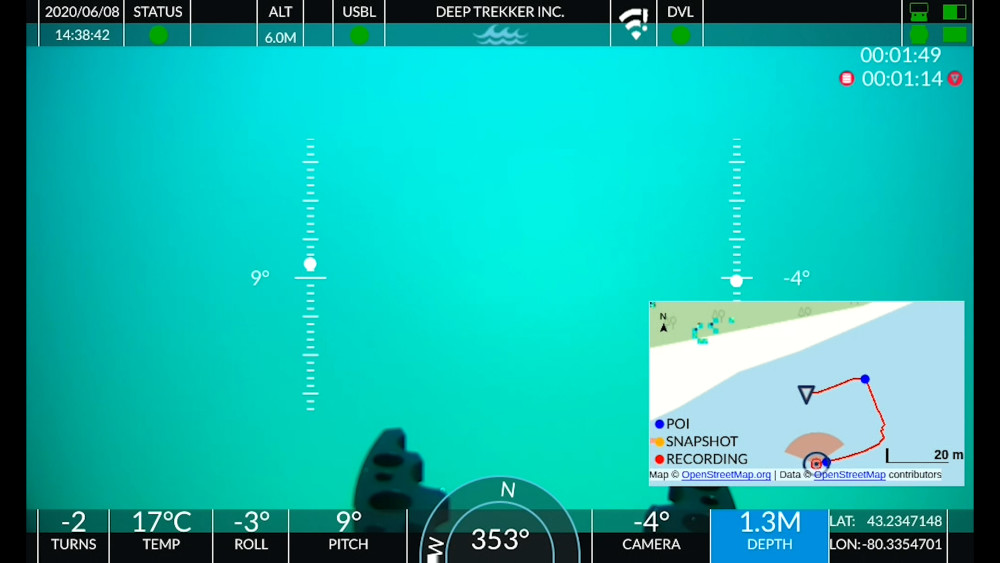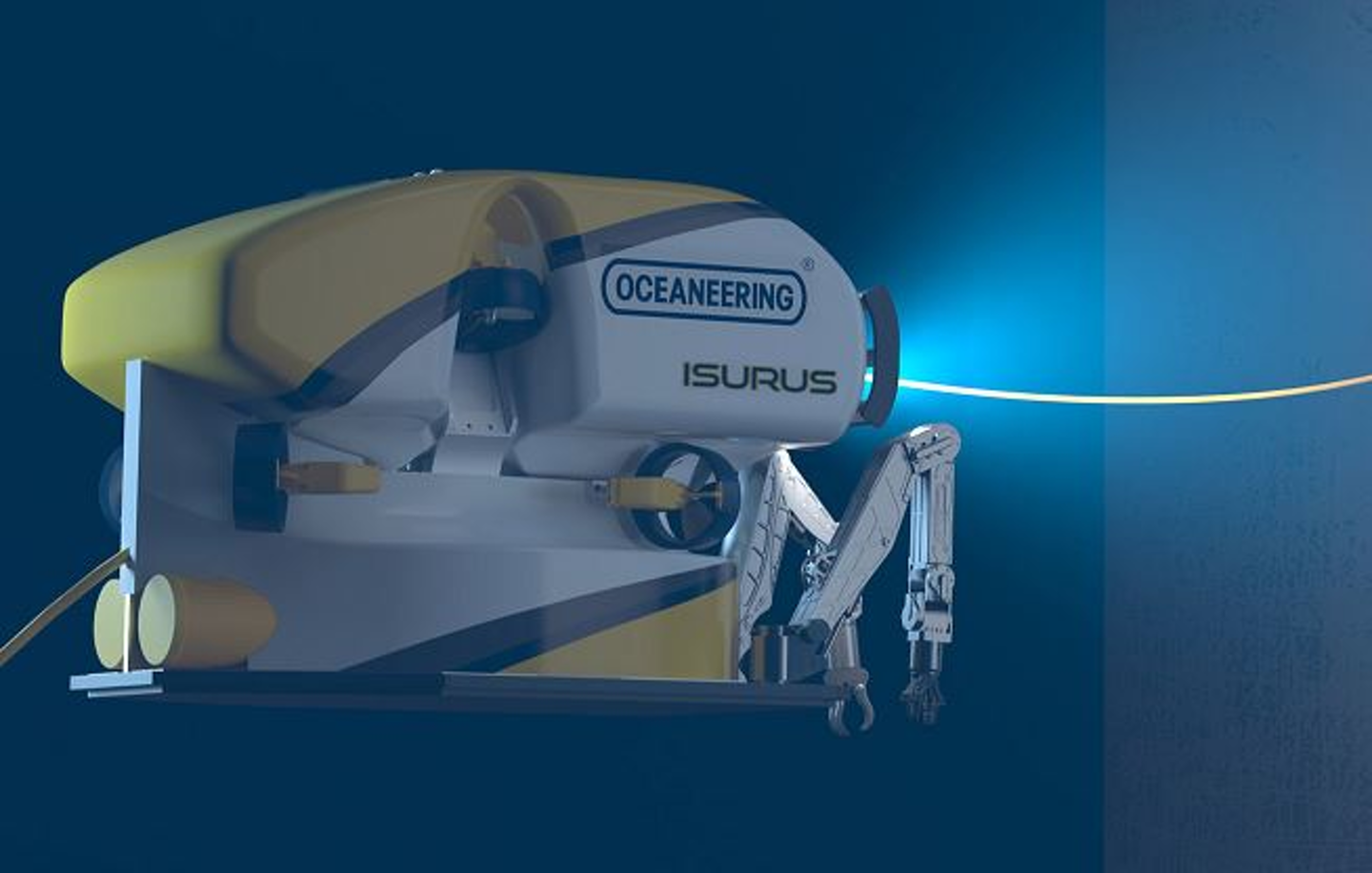Home › Forums › General › General Board › New Poll added – Should a trainee be an additional member?
- This topic has 36 replies, 11 voices, and was last updated 15 years, 5 months ago by
Scott Beveridge.
-
AuthorPosts
-
November 10, 2008 at 12:20 pm #20153
Andy Shiers
ParticipantThey are still ‘Green’ and therefore In training so should be classed as Trainee 🙄
November 10, 2008 at 4:37 pm #20154James McLauchlan
ParticipantOf course they only PAY them as Trainees…!
We had this in diving years back.. until the agreement came in. After which, if my memory serves me correctly, the companies were required to pay a person whatever grade they employed them at. For a while they did try the old… er, we have no diver grade II slots on the team but we could send you out as a grade II on grade III pay!!
November 10, 2008 at 6:59 pm #20156Stephen Black
ParticipantIt seems to me that either the supervisors of today are not up to the job or are scared of training people.
I have seen a lot of supervisors that will not let the trainee or even a pilot tech near the sticks, which tells me, the supervisor is not up to the job themselves. Recently I did a fill in job for a new company, the supervisor of 5 years offshore work, did not trust anybody to fly so sat in the seat for 12 hours a day.
A good supervisor supervisors and lets the troops do their part!
I have found over many years that a new person with a good technical background will very quickly lean the basics of the job.
The best way to learn the the job is to do the job and not be pushed into the back ground to observe
November 10, 2008 at 7:34 pm #20157Andy Shiers
ParticipantIt seems to me that either the supervisors of today are not up to the job or are scared of training people.
What a load of Utter Bollocks ! 👿
November 10, 2008 at 7:44 pm #20155James McLauchlan
ParticipantThe best way to learn the the job is to do the job and not be pushed into the back ground to observe
That must not be allowed to happen to start with. There are any number of jobs where the client is paying good money to have a professional job done not fork out to run an offshore training school at their expense. The last thing they want to see is something taking forever, or being buggered up, because some guy is training in the sticks. By all mean give trainees a shot when things are quiet, and maybe a bit of waiting is going on, but that is as far as it should go to begin with.
A trainee is not equipped to fill the slot of an experienced team member at the outset, hence the trainee title. I feel that they should be mobilised in addition to a full team and learn as and when time/operations allow.
November 10, 2008 at 7:47 pm #20158Andy Shiers
ParticipantThat’s the second ridiculous thing thing you have said in the last week ! The first being
It depends on what the job is and what type of LARS system you have
I have done plenty of Drill rig support jobs with a LARS that needs 1 person to put the entire system overthe side. I have also worked on Eyeball jobs where the Garage was not much smaller than a small work class ROV and operated by 2 people per shift
The question being how many people on a work class team ? The answer ………. to work safely …… Three !
A trainee is to learn , Observe and do as he is told , If there is no pressure and no client breathing down your neck then sure "let the boy get his spurs" But there is a time and place for everything and he should still be additional to the actual crewNovember 10, 2008 at 7:50 pm #20159Andy Shiers
ParticipantOoops , 😕
You got in there before me James 😯November 10, 2008 at 8:39 pm #20160tinchicken
ParticipantThey have technical qualifications and they have done the ROV Training course, therefore they are not trainees,
Firstly not all trainees have technical qualifications, they should, but they don’t.
Secondly they may have a technical background and done the ROV course, but they often don’t know about life offshore, acceptable working practices, safety issues, enviromental issues etc ctc, there is alot more to learn than just flying the thing.
So no, completing the course doesn’t mean you are not a trainee.
A trainee needs to be an extra, if for example, your boiler needed fixing would you expect a trainee to turn up instead of a qualified person? No you would expect him to accompany one.
A few years ago OI (who usually come in for a fair amount of stick on here) introduced a task book, for all grades. Unless you completed every section in that book you weren’t elegible to move up a grade. This ort of thing needs to be adopted by the industry as a whole.
November 10, 2008 at 9:57 pm #20161rover22
ParticipantHi all,
I agree with Beeman, it is unfortunately the case that many supervisors cannot or will not raise a finger to guide and develop the younger guys on their team. This is a reality and while the supervisor does have the job to manage and often politics to deal with, they cannot do the job alone and will have to use the team they have to do it. The project manager/HR guy/girl must also excercise some care and only send people offshore who are properly suited to the job (ie meet IMCA entry-level requirements for ROV personnel and actualy be a technician or technicaly qualified in some way etc). This brings up another point made, Tin chicken rightly pointed out that many trainees (ROV Pilot/Tech II’s) are filled up with ROV school tech courses, but lack the pre-requisite technical qualifications or experience required by IMCA for ROV Trainees. I have yet to meet a trainee with a trade or technical background (trade apprentice or military-trained tech) who cannot pick the ropes up quickly and be useful. I have had to work with a lot of trainees from training schools who met the entry requirement of paying a course fee and then making up for a lack of technical training/experience/qualifications by doing add-on 5-day city & guild NQF Level 3 courses. In most cases, they talk the talk, but cannot alk the walk and need constant guidance and correction to become technically useful in some way. This is a new topic altogether.
I personaly would like to see a development where trainees are given slots as extra’s, but it would take the client companies to agree, the operators to have bed space and a budget and supervisors who will have to both get the job done with the existing team, but with the additional responsibility of having to mentor/guide the extra person/s.
Until the client or operator agrees and someone foots the bill, it wont happen. If someone or some organisation with vision supports the idea and raises it to be an issue with clients and operators (IMCA to its members of all categories), it could happen. Or if an operating company bites the bullet, carries the cost and does it. I know that IMCA has addressed this issue earlier this year (berths for trainees) to attempt to ensure more people are given the opportunity to be trained and get experience as the reality of a skills shortage across the board (ROV, survey etc) is believed to be looming, so maybe it may happen.
Lets keep our fingers crossed.
November 11, 2008 at 12:09 am #20162Ray Shields
ParticipantThey have technical qualifications and they have done the ROV Training course, therefore they are not trainees,
Firstly not all trainees have technical qualifications, they should, but they don’t.
Secondly they may have a technical background and done the ROV course, but they often don’t know about life offshore, acceptable working practices, safety issues, enviromental issues etc ctc, there is alot more to learn than just flying the thing.
So no, completing the course doesn’t mean you are not a trainee.
A trainee needs to be an extra, if for example, your boiler needed fixing would you expect a trainee to turn up instead of a qualified person? No you would expect him to accompany one.
A few years ago OI (who usually come in for a fair amount of stick on here) introduced a task book, for all grades. Unless you completed every section in that book you weren’t elegible to move up a grade. This ort of thing needs to be adopted by the industry as a whole.
If they do not have the relevant technical qualifications/experience (as detailed in IMCA R002) then training schools should not accept them – but they do.
And then training schools sign them off as being competent and PT2’s. Who is to say that the schools are wrong – THIS is the big question that needs answering. We need to STOP people who ARE Trainees in reality being signed off for something they are not. IMCA are the best people to stop them – its their standards after all.
I agree with what you are saying but I am looking at what is happening just now. Equate it to a 17 year old who has never seen/driven a car before. They go on a 3 week intensive driving course, they then sit their test and pass. They now have a license to drive. Off they go onto motorways. They are legal, they have a license, who are we to say "no, get off the road, you have to sit in a car and be a passenger for 6 months". They say piss off, look I have a license, and off they go.
Task books are known as Competency books, IMCA already have them. I have seen them completed only for companies turn round and say "oh we dont bother with them your not due another promotion yet".
Complete waste of paper and time.
November 11, 2008 at 2:20 am #20163rover22
ParticipantHi Ray,
I agree 100%. See my post on the general board about industry regulation of ROV training schools.
I believe industry IMCA members (clients and operators) should insist that IMCA audit schools to ensure they are compliant ITO relevant IMCA guidelines and then recognise the school as an Approved ROV Personnel Training Provider. This is abou the only way I think. This would then be the same as diver training schools and will help restore some balance to the standards already generated by IMCA but very seldom applied.
I am really tired of the horror stories of any and all accepted on courses as paying clients only to end up without work, chance of work and in debt as well. Or, alternatively, getting offshoreonly to lack ability to comprehend and develop as an ROV Pilot/Tech as they are not technicians to start with. No-one benefits really the way it is now (in my opinion) and is a general drop in standards all-round
November 11, 2008 at 9:37 am #20164James McLauchlan
ParticipantSo imagine the scenario whereby the trainee was an extra team member.
I’d put them on a split shift so that they are shared for 6hrs per shift and also get to see how two teams (Two ROV sups and four techs) do things.On a work class system that would leave a team of three to help train up one person.
Often there is mention of the supervisor this, and the supervisor that, when it comes to who will train these people. Can I ask why people keep indicating that it is the supervisor that should do the training? Surely it is a team responsibility.
There is not only a supervisor on the team that has experience and knowledge of the system and ops. What are the other PTs doing when the supervisor is not training the new kid on the block?
November 11, 2008 at 10:42 am #20165sedco
ParticipantHere’s another one for discussion.
Should an agency Supervisor be expected to train up company trainees?
November 11, 2008 at 12:21 pm #20166James McLauchlan
ParticipantWhy the Supervisor… again?
Any experienced team members should participate in imparting knowledge and experience. Whether they are agency or not it should be the natural thing to do.
November 11, 2008 at 1:17 pm #20167Andy Shiers
ParticipantAnswer to your question , Sedco , Yes
Trainee is a trainee and needs guidence no matter what position you are in BUT…………………………….
I don’t expect to guide a supervisor as he is expected to have ten plus years under his belt and so knows what he is doing ,…………………………. Hopefully 😯 -
AuthorPosts
- You must be logged in to reply to this topic.



